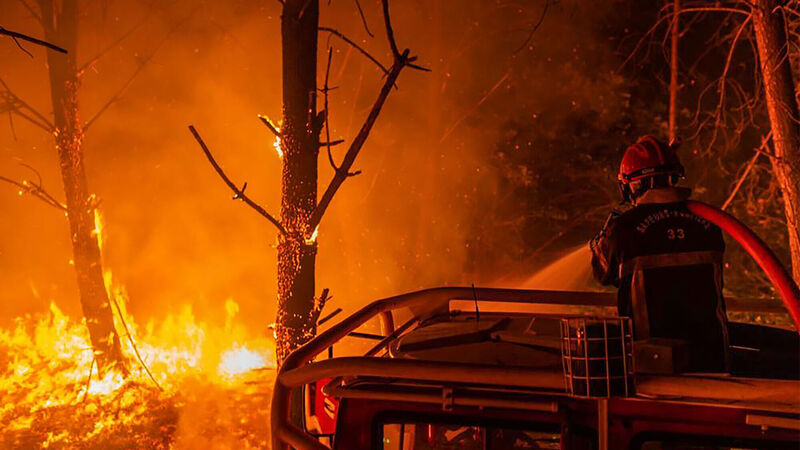Climate change choice is simple - 'collective action or collective suicide'

This photo provided by the fire brigade of the Gironde region (SDIS 33) shows a firefighter puts water on a trees at a forest fire at La Test-de-Buch, southwestern France, late Monday. Picture: SDIS 33 via AP
The World Health Organization (WHO) has called for pan-European action to address climate change as heatwaves and wildfires continue.
This week has seen record-breaking high temperatures and wildfires destroying large swathes of land across Europe.
CLIMATE & SUSTAINABILITY HUB













